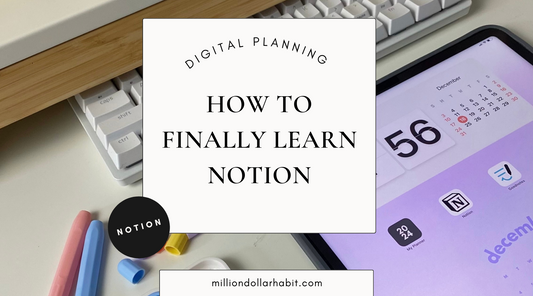The planning trap is a real thing. We get so caught up in making the perfect plan that we never actually take action. But what if there was a way to escape this trap and start achieving our goals?

The Seductive Trap of Planning: Why Feeling Productive Isn't the Same as Being Productive
We've all been there. You open your planner, a fresh notebook, or a blank document, and the possibilities unfurl before you. You meticulously craft to-do lists, color-code your calendar, and brainstorm like a productivity ninja. Each checkmark feels like a tiny victory, each neatly organized section a testament to your control over the chaos of life. And for a while, it's glorious. You bask in the warm glow of accomplishment, convinced you're on the fast track to achieving all your goals.
But then, reality bites. The deadlines loom closer, the untouched tasks pile up, and the initial surge of motivation dwindles to a flicker. You realize, with a hollow pang, that all the planning in the world hasn't actually moved you any closer to your goals. You've been playing an elaborate game of pretend, where feeling productive trumps actual productivity.
Why Planning Feels So Good
So, what is it about planning that makes it so seductive, even when it's ultimately futile? Psychologists have a few theories:
- The illusion of control: Planning gives us a sense of agency over our lives. We create structure, break down challenges, and convince ourselves that we're in the driver's seat. This illusion of control can be incredibly comforting, especially in a world that often feels unpredictable.
- The dopamine rush: Every checkmark, every completed section, triggers a tiny dopamine release in our brains. This neurotransmitter is associated with pleasure and reward, making us feel happy and accomplished. It's the same dopamine hit we get from eating chocolate or winning a game, and it can be highly addictive.
- The procrastination paradox: Sometimes, planning becomes a form of procrastination itself. We avoid the actual work by immersing ourselves in the planning process. It's a way of putting off the difficult or unpleasant tasks, while still feeling like we're making progress.
The Problem with Planning Without Action
While planning can be a valuable tool, it's important to remember that it's just that - a tool. It's not a magic bullet for success. In fact, over-planning can be counterproductive. It can lead to analysis paralysis, perfectionism, and even burnout.
Here's the harsh truth: feeling productive isn't the same as being productive. Checking items off a to-do list doesn't mean you're actually making progress towards your goals. The only thing that moves the needle is taking action.
Breaking Free from the Planning Trap
So, how do we break free from the seductive trap of planning and start making real progress? Here are a few tips:
- Focus on action, not just planning. Set aside a specific amount of time for planning, and then stick to it. Don't let planning become an endless loop that keeps you from taking action.
- Start small and build momentum. Don't try to tackle everything at once. Break down your goals into small, achievable steps, and focus on completing one task at a time.
- Celebrate your accomplishments, big and small. Every step forward is a victory, no matter how small. Acknowledge your progress and reward yourself for your hard work.
- Track your progress. Keeping track of your progress can help you stay motivated and see how far you've come. Use a planner, a progress tracker app, or even a simple whiteboard.
- Seek help if you need it. If you're struggling to overcome procrastination or feeling overwhelmed, don't be afraid to ask for help. Talk to a friend, family member, therapist, or coach.
Remember, progress is rarely linear. There will be times when you feel stuck or like you're taking two steps back for every step forward. But don't give up. Keep taking action, keep celebrating your wins, and keep reminding yourself that the only way to achieve your goals is to do the work.
Planning can be a powerful tool, but it's important to use it wisely. Don't let it become a substitute for action. Focus on taking steps forward, no matter how small, and celebrate your progress along the way. That's the key to unlocking true productivity and achieving your dreams.
I hope this blog post has been helpful. If you have any other questions or tips, please feel free to share them in the comments below.






